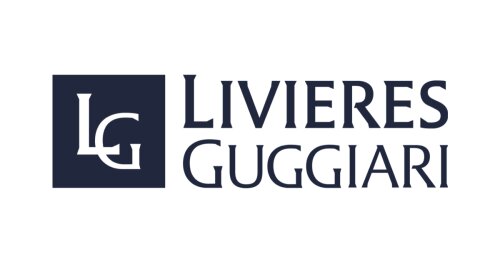Best Water Law Lawyers in Asunción
Share your needs with us, get contacted by law firms.
Free. Takes 2 min.
List of the best lawyers in Asunción, Paraguay
About Water Law in Asunción, Paraguay
Water Law in Asunción, Paraguay refers to the body of local, national, and international legal norms that regulate the use, management, distribution, conservation, and protection of water resources within the city and its surrounding jurisdictions. This area of law covers all forms of water including surface water, groundwater, and public waterways, aiming to safeguard equitable access for households, agricultural activities, industries, and ecological needs. In Paraguay, water is considered a public good, and its use is closely regulated by state and municipal authorities in accordance with the National Water Law and local ordinances.
Why You May Need a Lawyer
Several situations may require the assistance of a lawyer specializing in Water Law in Asunción. These include disputes over water rights or access, complications in obtaining permits for wells or water extraction, issues with water contamination or pollution, regulatory compliance for construction projects affecting rivers or wetlands, and disagreements between neighbors or communities over shared water sources. Legal professionals can help clarify rights and responsibilities, represent clients in court or administrative hearings, and negotiate agreements with public agencies or other parties.
Local Laws Overview
In Asunción, water use and management are regulated by a framework that includes the Paraguayan National Water Law (Ley 3239/2007), municipal ordinances, and specific environmental regulations. The overarching goal is to ensure the sustainable and equitable use of water resources for the population while protecting aquatic ecosystems. Key aspects relevant to residents and businesses include:
- Licensing and Permits: Extraction, use, and discharge of water usually require permits from national or municipal authorities. - Water Rights: Water is generally public property, but rights for private use can be granted under regulated terms. - Environmental Protection: Construction or industrial activities impacting water sources must comply with environmental impact assessments and regulations set by the Secretaria del Ambiente (SEAM). - Quality Standards: Laws set quality standards for drinking water, industrial discharge, and sewage treatment. - Punitive Measures: Violations, such as unauthorized extraction or pollution, may trigger administrative, civil, or criminal penalties.
Frequently Asked Questions
What government authority regulates water use in Asunción?
Water use in Asunción is primarily regulated by national agencies such as the Secretaria del Ambiente (SEAM) and the Administración Nacional de Electricidad (ANDE), in coordination with the local municipality.
Do I need a permit to dig a well on my property?
Yes, you must apply for a permit from the competent authority before drilling or operating a well, even when it is for private use.
Can I be fined for using too much water or polluting a water source?
Yes, overuse and pollution of water sources are subject to fines and other sanctions under water and environmental laws.
How are water rights determined in Paraguay?
Water rights are allocated by government authorities based on applications, taking into consideration existing uses, environmental preservation, and public interest.
Who is responsible for providing public water services in Asunción?
The public utility ESSAP S.A. (Empresa de Servicios Sanitarios del Paraguay) is the main provider of potable water in Asunción.
What can I do if my neighbor’s activities pollute my water supply?
You can file a complaint with environmental authorities and may seek legal action, including claims for damages and restoration of your water supply.
Are there specific laws for protecting rivers and wetlands?
Yes, both national and municipal regulations exist to protect rivers, wetlands, and their surrounding areas, often requiring special permits for nearby development.
How can industries comply with water discharge regulations?
Industries must follow technical standards for water treatment, obtain discharge permits, and regularly report activities to environmental authorities.
Is rainwater harvesting permitted?
In most cases, harvesting rainwater for personal or non-commercial use is allowed, but large-scale systems or those affecting public supplies may require authorization.
What are the penalties for unauthorized water use?
Penalties may include fines, orders to cease the activity, environmental restoration obligations, and, in serious cases, criminal prosecution.
Additional Resources
For more information or assistance with Water Law issues in Asunción, you may consult the following bodies and organizations:
- Secretaria del Ambiente (SEAM) for environmental permits and regulations - ESSAP S.A. for public water service and connections - Municipalidad de Asunción for local ordinances and land use rules - Ministerio del Ambiente y Desarrollo Sostenible for national water policies - Colegio de Abogados del Paraguay for referrals to specialized attorneys - Non-governmental organizations focusing on water rights and environmental protection
Next Steps
If you need legal assistance in Water Law, start by documenting your issue in detail and gathering any relevant permits, correspondence, or evidence. Contact a lawyer with experience in Water Law, preferably one familiar with Asunción’s municipal regulations. Schedule a consultation to discuss your rights, responsibilities, and potential solutions. You can request a referral from the local bar association or approach relevant public authorities for guidance. Acting promptly ensures you protect your interests and comply with all applicable laws.
Lawzana helps you find the best lawyers and law firms in Asunción through a curated and pre-screened list of qualified legal professionals. Our platform offers rankings and detailed profiles of attorneys and law firms, allowing you to compare based on practice areas, including Water Law, experience, and client feedback.
Each profile includes a description of the firm's areas of practice, client reviews, team members and partners, year of establishment, spoken languages, office locations, contact information, social media presence, and any published articles or resources. Most firms on our platform speak English and are experienced in both local and international legal matters.
Get a quote from top-rated law firms in Asunción, Paraguay — quickly, securely, and without unnecessary hassle.
Disclaimer:
The information provided on this page is for general informational purposes only and does not constitute legal advice. While we strive to ensure the accuracy and relevance of the content, legal information may change over time, and interpretations of the law can vary. You should always consult with a qualified legal professional for advice specific to your situation.
We disclaim all liability for actions taken or not taken based on the content of this page. If you believe any information is incorrect or outdated, please contact us, and we will review and update it where appropriate.









